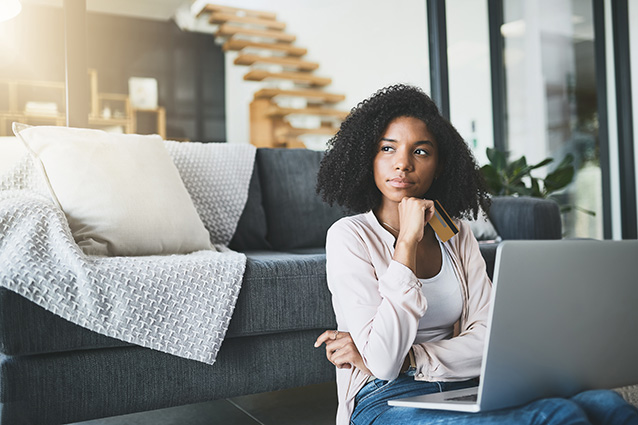How COVID-19 May Be Shaping Your Buying Habits

Not since the outbreak of the 1918 influenza epidemic, has the world experienced anything like the COVID-19 pandemic. Entire countries have shut down in an effort to "flatten the curve" and stop the spread of the novel coronavirus before it overwhelms healthcare systems. Most individuals have had to stay at home, and the disruption to lives has been sudden and very noticeable.
Fear and anxiety affect mood and health
The fear and anxiety over the disease may cause an overwhelming reaction in both adults and children. People may experience anything from fear and worry to changes in sleeping and eating patterns, difficulty in concentration, and worsening chronic and mental health issues.
That heightened fear also causes us to behave in ways that are harmful towards ourselves and others as we let this negative state of mind influence our logic and judgement. Of course, for most people this may manifest as merely a change in consumer behaviour. For example, as COVID-19 spread around the globe in March and April, many governments were forced to issue warnings against hoarding of items such as toilet paper and tinned food, which was happening in spite of the fact that supply chains remained in operation.
Reacting to stress the right way
People react to stress in different ways, but coping with it is an important step towards not only being as safe as we can be during the COVID-19 pandemic, but also ensuring that we make the right decisions for our future during this time. The fears that drive unnecessary hoarding may very well be showing in other areas of our lives.
A good tip to keep in mind is to recognise that you're stressed, and ensuring it doesn't affect the way you act. For example, you might feel more tired at the end of the day -- could it be that you've literally been tense all day? You might want to practice simple relaxation techniques that you could do at your desk to ease tension, like unclenching your jaw and rolling your shoulders.
The South African Reserve Bank warned in early April that the economy is likely to contract by between 2 and 4% in 2020 due to COVID-19, and we will alter our buying habits in response. You could give yourself a little reminder, for example, to avoid hoarding behaviour when out shopping.
We're changing how we're shopping
As COVID-19 first hit China, how they've reacted to lockdown shows us how we might too. For example, people stopped buying luxury goods, they stopped dining out, clubbing, and travel, and chose to spend on food, medicine, medical insurance and life insurance purchases. This is likely showing us what the global new normal will be.
We will get through this!
It may be easy to forget as we navigate phased lockdown, but we will get through this! Life will go on, though it will be very different after 2020. The first thing to remember is to breathe! Get adequate rest and exercise, and eat the right food (though, of course, comfort foods are definitely still on the menu!) to ensure you're supporting your body and mind.
Take the time you need to research your spend, and your budget, properly. The comparative tool on Hippo.co.za is there to help you make the choice that is optimal for you.
Decisions we take now about money and spending should be made with a mind to not only survive the immediate moment of heightened fear and anxiety, but also to be prepared for whatever the world may bring after.
And remember, you've got this!
This article is for informational purposes only and should not be construed as financial, legal, or medical advice.
Hippo Blog Categories

































